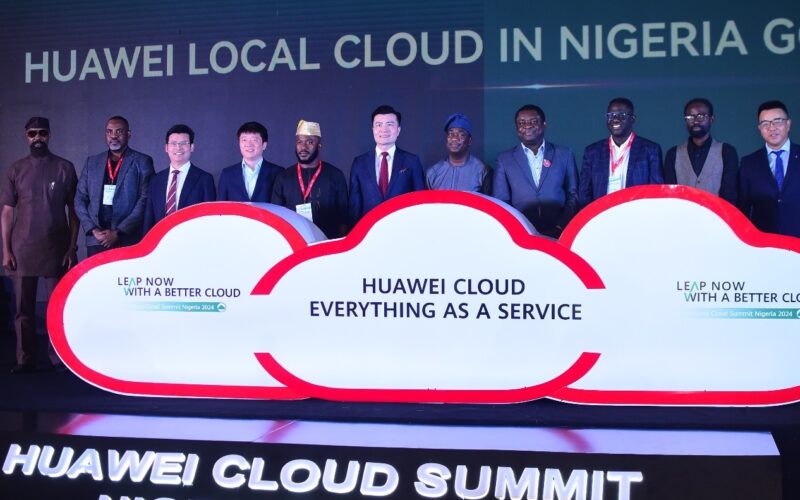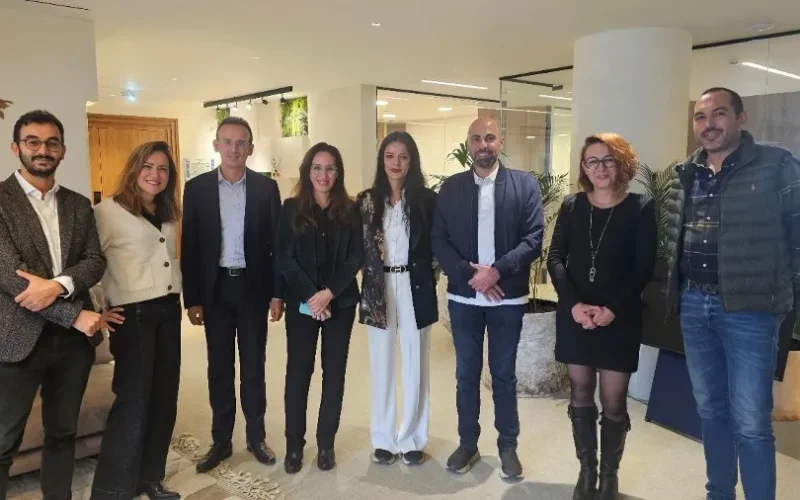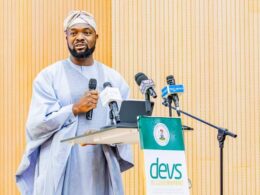Huawei has launched its local cloud service in Nigeria, marking a key milestone in its African growth strategy. The launch offers enhanced data sovereignty, reduced latency, and bolstered support for local businesses. The service aims to support Nigerian startups, SMEs, and the broader tech ecosystem, aligning with Nigeria’s regulatory environment and digital transformation goals.
Unveiled on December 10, 2024, the Huawei Cloud Summit Nigeria 2024 showcased the local cloud offering, which comes with a tier 3+ uptime standard, 99.99% intensity, and compliance with the regulations of the Central Bank of Nigeria. This development ensures that sensitive data remains within national borders, aligning with Nigeria’s data protection policies. The local cloud service is set to significantly reduce latency, providing Nigerian businesses with faster and more reliable access to cloud resources. This improvement benefits startups and small to medium-sized enterprises (SMEs) that rely on cloud-based applications, enhancing productivity and competitiveness in local and international markets.
“With disruptive technology, we can transform ourselves, our daily lives, our industries, and our economy,” Chris Lu, CEO of Huawei Nigeria, said in his opening speech during the launch.
Explaining why Huawei decided to build a local cloud in Nigeria, Lu said trust for reliability and speed is the reason the global tech company is localising cloud services. “We can provide much better services, much better latency to our customers in Nigeria. We are committed to accelerating the prosperity of Nigeria,” the CEO said.
Represented by the Acting Director, Regulations and Compliance, NITDA, Barrister Emmanuel Edet, Kashifu Inuwa Abdullahi, Director-General of NITDA, in his speech said, “Nigeria has huge potential for cloud infrastructure, thus giving the country a boost for cloud infrastructure investment.”
Dr. Obafemi Hamzat, Deputy Governor of Lagos State, emphasized the significance of Huawei’s local cloud initiative. “Huawei building a cloud in Nigeria is a big deal because of data sovereignty and helps Nigeria compete on a global scale. The theme of the summit speaks to our shared interest in embracing digital transformation,” he said. Hamzat also urged businesses to embrace technologies like cloud computing as key to unlocking transformational systems.
During the summit, Roc Bai, Vice President of Cloud for the Sub-Saharan African Region, highlighted the Nigerian government’s support for cloud computing and digital transformation. “We will provide local cover to ensure data sovereignty,” Bai assured, while emphasizing Huawei’s commitment to speed, citing a latency figure of 00.15 seconds for the Huawei Cloud.
Bai also announced the availability of Huawei Cloud Stack in Nigeria. Huawei Cloud Stack is a hybrid cloud solution designed to manage physically distributed, logically unified resources. It offers more than 70 cloud services across 10 categories and supports the development of large-scale central cloud platforms for governments and enterprises. It can also transform legacy applications using distributed or microservices-based architecture. “This comes with AI abilities. You’re also sure of security and stability,” Bai noted.
In addition, Bai introduced Huawei Pangu, a series of large-scale AI models developed using Huawei’s MindSpore computing framework and custom AI chips, Ascend. These models cover domains such as natural language processing, computer vision, multi-modal tasks, and scientific computing. Services like Pangu-Weather and Pangu-α are now available on Huawei Cloud.
Hugo Hu, Managing Director of Huawei Cloud Nigeria, reflected on the company’s growth over the past three years. “Revenue has grown 20x, and we now have over 50 partners,” he stated. Yinka Daramola, CEO of Qucoon Limited, praised the partnership with Huawei, noting, “When you work with Huawei, you become a global partner.”
Oziegbe Oseghale, CIO of Global Accelerex Limited, shared the company’s experience with Huawei Cloud. “130,000+ businesses trust us because, in moving to Huawei, we have been able to overcome challenges, especially cost optimization,” Oseghale explained.
Looking ahead, Hugo Hu outlined Huawei’s five-year plan for its local cloud in Nigeria, which includes servicing 1,000 customers, partnering with 100 organizations, and engaging 5,000 developers.
Read also: Google Expands Cloud Reach With First African Data Center.
Huawei’s commitment to Nigeria’s tech ecosystem extends beyond infrastructure. Earlier in 2024, the company announced plans to support 100 Nigerian startups over the next two years, fostering innovation and growth within the sector. Its investments extend to talent development as well. The company has rolled out programs to train African professionals in emerging tech skills. In Nigeria alone, Huawei plans to support the training of thousands of individuals by 2027, ensuring that the local workforce is prepared to navigate and contribute to the digital economy.
Closing the summit, Osita Iweze, Deputy Managing Director of Huawei Nigeria, highlighted the company’s commitment to innovation and digital talent development. “We have trained over 70,000 digital talents in Nigeria and will continue to provide innovative solutions, especially with the launch of the local cloud,” Iweze concluded.
By providing robust cloud infrastructure, Huawei enables businesses to leverage advanced technologies such as artificial intelligence, big data analytics, and the Internet of Things. This capability is crucial for sectors like fintech, e-commerce, and healthcare, which are pivotal to Nigeria’s economic diversification.
Huawei’s foray into cloud services across Africa demonstrates its commitment to helping nations address pressing issues like data sovereignty. By establishing local data centers, the company ensures that businesses and governments can store data within national borders, aligning with local regulatory requirements. This is particularly significant for African countries like Nigeria, where concerns over data security and sovereignty have been growing alongside digital adoption.
Beyond cloud technology, Huawei has invested heavily in Africa’s tech ecosystem, forming partnerships with governments and private entities to drive digital transformation. For example, the company has collaborated with local telecommunications firms to expand 5G coverage, paving the way for smart city projects and improved digital connectivity.
In summary, Huawei’s local cloud launch in Nigeria is not just an isolated development but part of a larger, carefully executed plan to solidify its leadership in Africa. Through investments in technology, partnerships, and human capital, Huawei is playing a pivotal role in shaping the continent’s digital trajectory.













Comments 2